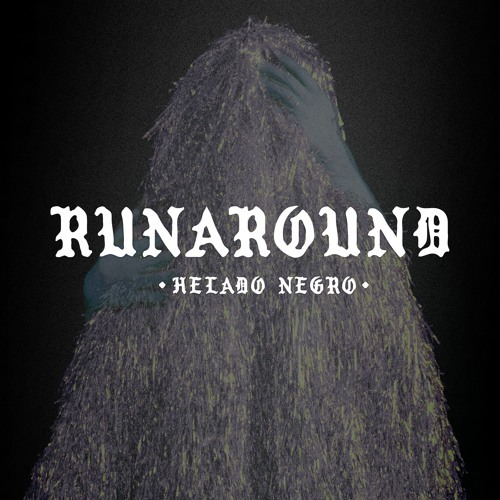Amiga, Alex AnwandterNacional Records, ChileRating: 90By Zé GarciaClub Fonograma first began transmitting communiques about the (nominal) pop insurrection sometime in October 2014. The term came attached to Fakuta’s Tormenta Solar, a record that sportively reflected Chile’s combatant youth with a mantra (as heard in “Fugitivos”), urging us to become outlaws rather than cogs in a machine. In recent memory, a growing number of artists in the Club Fonograma scene and beyond have gone on to make their own statements regarding an array of amalgamated global crises. From Beyoncé’s anti police publicity stunts, The Knife's conflictual
Shaking The Habitual, Julieta Venegas’
plea for the 43 students of Ayotzinapa & against femicide,
Lido Pimienta’s vocal repudiation of white supremacy & her celebration of water as an Indigenous womn, Destiny’s
celebration of Taino & African ancestries through funky soul music, to the rapture that is felt every time Kendrick Lamar sings about hating the police & articulates Black resiliency in the face of social death. Systems of domination everywhere are trembling at present (& forthcoming) insurrections. We should continue celebrating our liberation, our uprisings. Our soundtrack is sounding pretty lit, too. Which brings us to the seminal record of the pop insurrection in the Club Fonograma scene:
Amiga by our Prince of Pop, Alex Anwandter.
You will likely find many publications gushing over
Amiga, claiming it is a progeny of this white man from New York, or that white band from Europe. Let us settle the score: disco, soul, funk, & Motown (the dominant music styles at work on Amiga) are mediums of the African diaspora. It isn’t surprising publications are more eager to name drop Phil Spector as an influence on Amiga but couldn’t even mention the Queen of Disco herself, Donna Summer. All shade aside,
Amiga exists because of Grace Jones, Gloria Gaynor, Diana Ross & The Supremes, Ashford & Simpson, Chic, and Marvin Gaye well before any white person. I am reminded of the words Lido Pimiento recently
shared with Club Fonograma: “there is this wrong impression that white people created “rock and roll”, Rock and Roll was pioneered by a Queer Black woman, her name was Sister Rosetta Tharpe.” Mentioning the liberation soul music of Chicago’s very own Curtis Mayfield seems compulsory when discussing
Amiga, Chilean pop’s most explicitly political album thus far. Without resorting to cultural cannibalism, Alex Anwandter's
magnum opus seems to derive its life source from Nina Simone’s “
Baltimore,” a timeless protest record that has enjoyed a resurgence since the Black Uprisings following the police murder of Freddie Gray.
Amiga feels like a candidate for Album of the Year. For immediate reference to this claim see the elegiac “Cordillera” which finds Alex at his poetic peak. Lyrics like “El Mercurio miente y la verdad se tira desde un Puma al mar, a ese mar que todavía baña a los niños en el litoral” feel like post colonial parables, while indictments of electioneering and lines like “que esto no se acabe…yo quiero pelear” feel like voices from street battles against $tate forces. “Cordillera” is monumentally gorgeous: the lush string arrangements at the end of the track uplift the record from memorable to epic. This is true of every moment in
Amiga that makes use of 1970s disco & soul era horn sections & orchestral strings (reaching one of many zeniths during the riveting, The Smiths / Elton John-esque "El Sonido De Los Corazones Que Se Quiebran"); such embellishments only add to the exquisite feeling of grandeur reminiscent of the album's aforementioned cultural predecessors. And since we are in the subject of Chilean pop, it should be noted that Dënver went on to create their best record yet using a similar formula, their "tribute to Motown,"
Fuera de Campo.
The album’s title track is a peculiar ode to Top 40 radio, although more effective and elating than its leading competitors in the charts. This foray into the 'top of the pops' allows us a glimpse into how EDM might sound if the calculated intentions of its maker were pure of heart. It comes with an incisive, no apologies breakup mantra (giving me Empress Of vibes), “y aunque no supe amarte, no pido perdon, si mi corazon cambio”. Slick and precise synth pop, “Mujer" contemplates centuries of patriarchy and rape culture- its staying power is accentuated by its sprite, orchestral panache. “Traición” is a disco showcase for Alex Anwandter's "future queer kingdom". All the wonders that
Amiga has to offer are at a ten here: house keys, female backing vocals for added flare, & (again) orchestral opulence. "Caminando A La Fábrica" is pure melancholy, illustrating that it isn't necessarily life itself that is the source of our torment, but rather capitalism. Sufjan Stevens vibes aren't out of the question here. And I most definitely needed this song during my near suicide depression days of third shift factory work a few years ago. Did I mention “Caminando A La Fabrica” features backing vocals by Julieta Venegas?
Only time will tell if "Manifiesto" is our generation's "Imagine" although no other exemplars have emerged to date. Like John Lennon's ode to world peace, "Manifesto" is stripped to bare bones: only a piano complements Alex Anwandter's silvery vocals. Like "Imagine", "Manifiesto" rejects formal theology and traditional systems of social control. However, "Manifiesto" offers something "Imagine" doesn't; its protagonist betrays a privilege (or perhaps a hindrance) afforded to them since birth: an emotionally stunted, male subjectivity. As the protagonist rejects male subjectivity to instead embody womanhood, they offer a glimpse into the terror experienced by trans and gender non conforming people: "sere el maricón del pueblo, aunque me prendan fuego." “Manifiesto” isn’t just theory, it is also a praxis; advocating for armed self defense: "yo quiero ser un manifiesto, hecho cuerpo…que va a disparar / lo justo no es normal, defiéndete no más.” Alex Anwandter claims his "Manifiesto" stands on the shoulders of his compatriots
Victor Jara and the "poor and queer" literary genius,
Pedro Lemebel. "Manifiesto" deserves our full attention Such a bold record has the universal spirit to command awards ceremonies. Next year’s “Hasta La Raiz” at the Latin Grammy’s? Better than winning industry awards, "Manifiesto" has an alchemical quality to make hearts made of stone bleed.
"¿Qué Será De Ti Mañana?” is completely devoted to Chilean folk music, the Nueva Canción movement, and it's protagonists like Mercedes Sosa and Violeta Parra. After all, Alex Anwantder is beaming his 21st Century pop manifesto to us from a post-colonial, post-dictatorship social reality in the southern cone. As suicide pandemics, modern alienation, and our interpersonal relationships continue to suffer in this purgatory of capitalism- "¿Qué será de ti mañana?" (what will become of you tomorrow) seems like a perfectly poignant question. I'm not simply projecting my own alienation as I write this essay, Alex Anwandter literally talks about the failings of capitalism. Alex seems to be alluding to the inherent emptiness universally embodied when energy (power) transfers are articulated through the spell of capital. Alex appeals to populism, "si alguien queda atrás, nadie avanza," alludes to the ebb and flow of revolt, reminding us that rebellions are temporary, "la revolución en dónde quede?” and finally, aspires for a day that doesn't betray our personal and collective potential for happiness. This was a song we listened to in a squat at 4 in the morning, accepting our collective and personal depression, and pressed on with our resolve to do something dangerous about our current myopic horizons.
Y empecé a chillar.
Like pulling a page from Juan Gabriel's diary, "Te Enamoraste" is perhaps Amiga's crowning achievement. It is a heart wrenching story of gracefully accepting the misery (& optimism) of falling in love with someone else. Alex accepts that there's nothing inherently wrong when love finds solace in the heart of another, "no tienes que pedir perdón". He accepts such jarring and traumatic developments with a profound sensibility, proclaiming that he understands that one doesn't discard a lover for another "eso lo entiendo yo / que no funciona así". The Orquesta de Camara de la Universidad Austral is simply exquisite on this album. Allow yourself to languish in the whimsical musical flourishes that complement these niceties. Grace gives way to an homage of shared, beautiful moments. And then Alex loses his elegant stride and begins to beg his former love to in turn bless his new love, begs her to be happy being just...a friend. "Te Enamoraste" displays a musical richness that speaks to the musical heritage of soul records. But we must firmly situate this number in the tradition of breakdown inducing Juan Gabriel epics. The strings reminisce "Querida", the final belt of "bendice mi amor, quiero que estés contenta, bendice mi amor" recalls the beautiful despondency of "Te Sigo Amando." Is it safe to say that "Te Enamoraste" is not unlike the cathartic urgency a queer boy might have felt in 1986, the year that birthed "Hasta Que Te Conocí"? But here Alex does something JuanGa could never do in his heyday (because of strict homophobic ethics in the Latino music industry), Alex seems to swap the pronoun from female to male as he delivers the devastating final moments of a career-defining album, from amiga to amigo. Where does one go after such a devastatingly tragic moment? Right back to the beginning of the record for the finest exemplar of our current pop insurrection: the anthemic disco house of "Siempre Es Viernes En Mi Corazón”. Alex Anwandter calls this track his wolf in sheep’s clothing, “a protest song disguised as a party anthem”. As I stated before, “Siempre Es Viernes En Mi Corazón” is "
our eternal mutiny in the discotheque and in the streets". It urges our generation to attack the modalities that Church and $tate have created. WITH FIRE.
Amiga is a sophisticated pleasure that is by no means facile. It is neither strictly synth pop nor disco. It also isn't exclusively “suited for the dance floor” as some publications have suggested. The first half of Amiga is euphoric discotheque bangers. But “Manifiesto” marks the turning point towards the album’s dysphoric second half. This is where some of the finest moments in
Amiga can be found, as Alex gently takes us by the hand to show us his political project with a splendor that matches Simon & Garfunkel’s “Bridge Over Troubled Water.” In other words, this is some of the saddest (& vitalizing) music Anwandter has ever created, reflecting a widespread societal malaise. Most of the moments Amiga generates are spaces of personal-political solace, a collection of melancholic melodies that allow broken spirits the ability to process, reflect, and yes, cry. Amiga could come with a trigger warning: it is a record full of confessional interpersonal & social miasma. Lines like “madre, tómame la mano / ya no tengo dudas, esto es el final" during the fascinating “Intentarlo Todo De Nuevo” function as double entendres. Clearly Alex is speaking to an end in a romantic relationship while simultaneously alluding to a broader eschatology; that we are living through a literal end of days.
Capitalism unquestionably shapes and molds our social realities, accomplishments & shortcomings.
Amiga deconstructs and attacks various modalities of control and even though our total liberation might never materialize, we are already creating our moments & methods of liberation. But our fortitude comes in our ability to share & create our own stories, our own otherness, our own queerness, as part of a deprogramming that we must undergo (individually and collectively) if we are to reject capitalism, patriarchy, & colonialism. When we build under capitalism, our desires are subjugated. Our agony, however we feel it, is the birthing pains of a world surviving capitalism. As "Siempre Es Viernes En Mi Corazón" suggests, we can weaponize our desires to destroy this reality, even as we subsist under the domination monolith of Capital.
Amiga plays like the current soundtrack of the ungovernable.

























